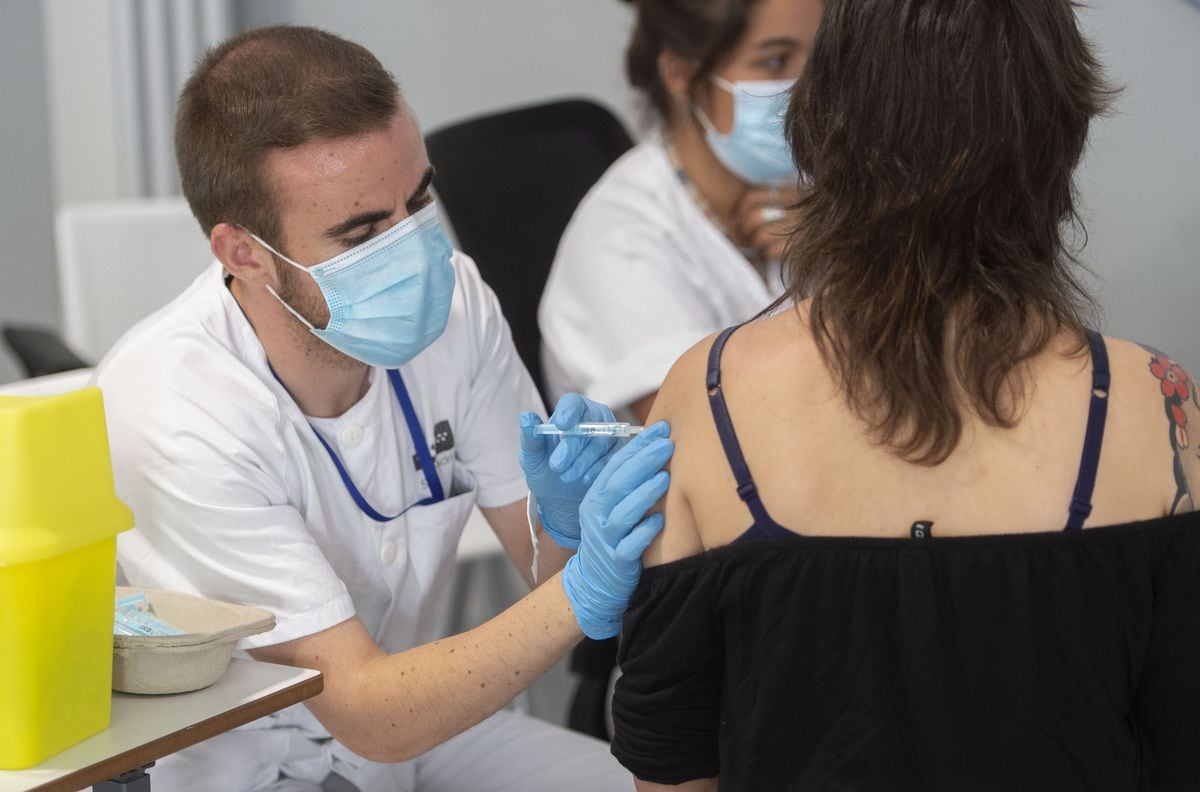The Minister of Health of Madrid, Enrique Ruiz Escudero, has asked this Monday “a little patience” to the Madrilenians who are seeing how they go from the 21st recommended to receive the second dose of Pfizer without being summoned “given the current environment vaccine shortage ”. As Escudero has argued, the technical file for this vaccine includes “that the second dose may be up to the 28th and sometimes even more.” The Ministry of Health is “trying by all means” that the appointment for the second dose “is the closest to the 21st,” said Escudero after his conference at the New Economy Forum, where he assured that in July they are ” receiving half of the vaccines than in June ”.
What happens to Madrid this July with the Pfizer doses happens to the rest of the communities and was well known. “Pfizer advanced to June doses of the fourth quarter, so it was an extraordinary month, and it was for all of Europe,” explains a spokesman for the Ministry of Health, which has already warned the regional governments that later it would return “to shipments usual before that month ”. Weekly, Health informs the regions about how many doses they are going to receive, so that each regional Executive can make their forecasts. According to data from the central government, between the 1 Y June 30 Madrid received 1,529,190 doses of Pfizer —in May had received 938,340-; so far in July, the middle of the month, 719,550 vials of this serum have already arrived, 251,550 last week. On the other hand, Madrid It is the autonomy that least vaccinates on what was received, 87.9% compared to the national average of 93.2%. According to data this Friday, Madrid had received 7,515,545 doses, inoculated 6,603,653 and stored 911,892 in the refrigerators.
More information
But the Government of the Community of Madrid is working to “maintain stock, adjusting vaccination, and in fact it has stopped administering first doses both in hospitals and in Primary Care and especially with self-appointment, to” avoid delays “for those who they have already received the first, according to Escudero. For the second appointment, they quote “24-48 hours before having the vaccine available for that appointment. In some citations, it is not done strictly on the 21st, sometimes it occurs with a longer delay endorsed by the technical sheet ”and especially by the shortage of vaccines that Madrid has been denouncing for many weeks, for which it has been“ keeping this stock ”, he added.
“I ask for a little patience to those who pass from the 21st, but we are within what the European Medicines Agency says, and we could extend it up to 42 days, but the objective is to do it as close as possible to the 21st,” according to the adviser. The counselor has blamed the situation on “the strategy of the Ministry [de Sanidad], of having lost Astrazeneca as a vaccine “for those under 60, so Madrid is” adapting to respond to Madrilenians who need the second dose, always conditioned by availability. ” In his speech, he stressed that “according to the vaccines we are receiving, the vaccination is going at a good pace.” “We have 73% of the Madrid population with the first dose and 54% with the complete regimen,” he pointed out.
According to the data provided by Escudero, there is currently a stock of about 700,000 vaccines: 193,000 Pfizer vaccines, with 160,000 already distributed for second doses; 281,000 from AstraZeneca, of which they will return 200,000; 82,190 to Moderna; and 191,000 from Janssen. The head of Health recalled that there is a “vaccine escape of about 7%” of people vaccinated with the first dose or complete schedule who have been reinfected with coronavirus, so we must not lower our guard. The hospital pressure is 554 patients in the ward and 116 in the UCi, “a figure within the control threshold, since the more infections there will be more admissions”, something that affects health professionals.
Regarding herd immunity, initially set for when 70% of the population has the complete guideline, Escudero has opined that “it is clear that, today, that 70% is not enough with the Delta variant”, since “an increase in hospitalization is being detected, although far from the seriousness” of previous waves and, “therefore we must insist on vaccination.” This variant is 40% more contagious than the British one and, according to the latest weekly report from the Ministry of Health, corresponding to the week between July 5 and 11, the Delta is already the predominant in the region, with 33 9% of the samples analyzed in hospital screenings and the age group most affected is 15 to 24 years old.
–


